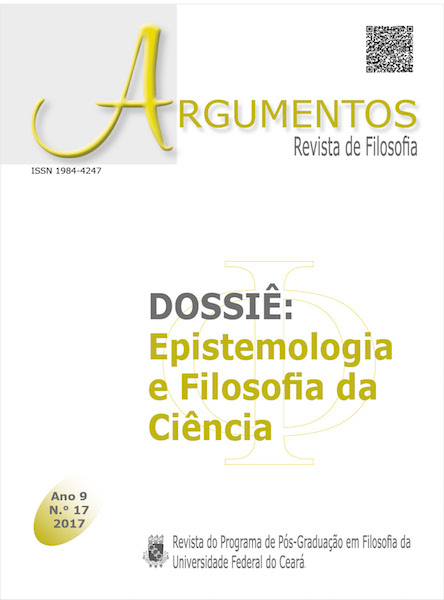Does being follow God? Considerations on the systematic-structural philosophy of Lorenz B. Puntel
Keywords:
Being. God. Metaphysics. Lorenz Puntel. Walter Benjamin. Markus Gabriel.Abstract
It will be basically presented the sistematic-structural philosophy of Puntel, showing how in it God is derived from the notion of being, to posteriorly defend the idea that the being and God must not be confused. Markus Gabriel’s thesis will be used which shows the impossibility of the domain of all the domains exist and the comprehension of the fundamental ambiguity of the being in the philosophy of Walter Benjamin. According to Gabriel, the philosophy of the entire generate an ontological doubling: the totality reproduces in the interior of itself, never having the determination of the last domain. Yet Benjamin proposes that there is no absolute sense of being, but multiple ways of comprehend and combine your senses. The decision to remain in fugacity of being leads to the following definition of metaphysical: a general discourse which objective is not a determined sense of reality, but an origin of the own plurality of the senses – the being. The being, then, must be understood as a name for a facticity that, because we are finite, we can not overcome and deplete theoretically. The being, therefore, must not be confused with God. He is not the transcendent guarantor, but the concept that is imposed in every way when we want to think the world and the loved ones.Downloads
Published
Issue
Section
License
Argumentos magazine is licensed under an International Creative Commons Attribution License.
The Magazine uses CC BY inclusion
1) The authors retain the copyright granted to the magazine or the right to initial publication, with the work regularly licensed under the Creative Commons Attribution, which allows the sharing of the work with acknowledgment of authorship and initial publication in this magazine.
2) The authors are authorized to contract additional applicable contracts, for non-exclusive distribution of the version of the work published in this journal (for example, publication in the institutional repository or as a chapter of the book), recognition of authorship and initial publication in this journal.
3) Authors are authorized and encourage to publish and distribute their work online (for example, in institutional repositories or on their personal pages) at any time before or during the editorial process, as they can generate productive changes, as well as increase the impact and reference of published work.




.jpg)










._._3.png)
1.jpg)
._._._.png)
